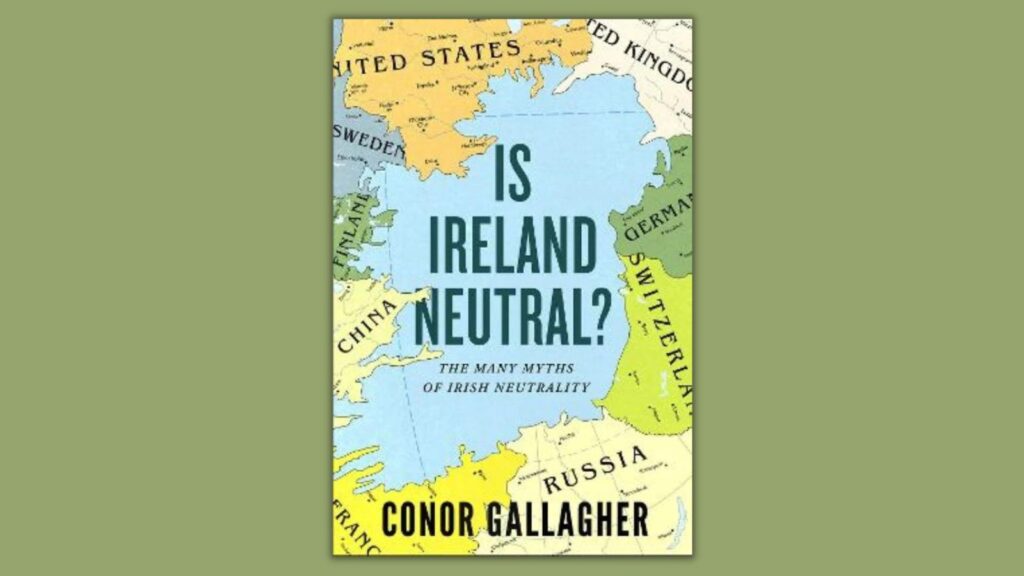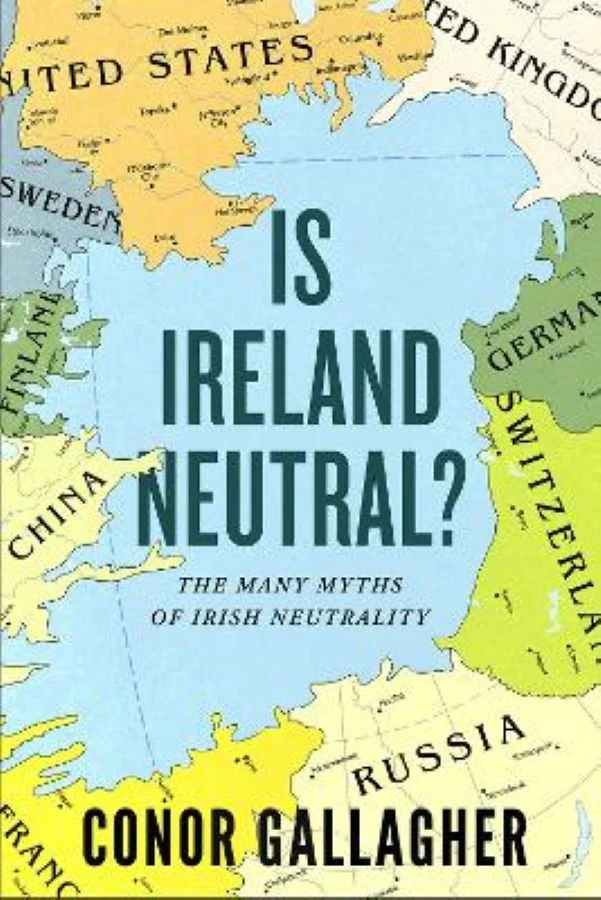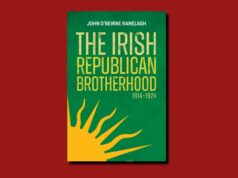
Is Ireland Neutral?|Conor Gallagher|Gill Books
Is Ireland Neutral? This book may not end the debate—but it’s a good place to start
by Tony Canavan
It becomes increasingly clear as one reads this book that Ireland is not neutral, in the sense that the Irish state has always taken sides in any international conflict.
From World War II to the current war in Ukraine, Ireland has been in favour of one side. Of course, this has not meant military participation in any armed conflict and this is what has enabled people to claim that Ireland is neutral. Perhaps a more appropriate title for Gallagher’s book might have been ‘How Neutral Is Ireland?’
Much hinges on the definition of neutrality and early on he recognises that there are many— from absolute isolation to selective participation in any conflict. This may seem to make the book redundant, since Ireland’s international stance can conform to any one of a number of versions of neutrality. Yet, there has been little real discussion in Ireland about a clear definition of neutrality or what it means in practice.
Much hinges on the definition of neutrality and early on he recognises that there are many— from absolute isolation to selective participation in any conflict
This is where Gallagher makes an important contribution as his book is a comprehensive history of neutrality in Ireland. He shows that the idea of neutrality first emerged during Britain’s war against revolutionary France in the 1790s, when many Irish, among them Wolfe Tone, argued that Ireland should stay out of this conflict. However, since the country was under British rule at the time, this was only a pipe dream.
Relationship with Britain
The idea of Irish neutrality over the subsequent decades emerged in the context of British wars, when it became an instrument of Irish nationalism: staying out of Britain’s wars was a way of expressing Ireland’s right to be a nation.
Even today, so Gallagher reveals, the Republic depends on the British armed forces for protection in the event of external threat
This reached its epitome in James Connolly’s declaration that he would fight for neither king nor kaiser. As with so much else, Ireland’s relationship with Britain was a key element in any discussion. Irish neutrality was, and sometimes still is, defined in terms of being anti-British. Once an independent Irish state had been established in 1922, economic dependence on Britain and the military weakness of the new state compromised any notions of absolute neutrality. Even today, so Gallagher reveals, the Republic depends on the British armed forces for protection in the event of external threat.
Irish foreign policy
Gallagher skilfully guides his reader through the twists and turns of Irish foreign policy in the decades after independence. In terms of neutrality, the new state meandered between involvement in international affairs, as in being active in the League of Nations, and neutrality, as it demonstrated during the Spanish Civil War (although most politicians and the public favoured the ‘Catholic’ rebels over the ‘godless’ republican government). Both policies were to a large extent predicated on the wish to demonstrate that Ireland was its own master and not subservient to Britain.
More than one government expressed the view that Ireland would join the North Atlantic Treaty Organisation (NATO) if the partition of the island were to end
World War II was crucial to the formation of Irish foreign policy. De Valera’s government managed to ride two horses at the same time. In some ways, the country was strictly neutral in the conflict between the Allies and the Axis powers, but Ireland also supplied intelligence and assistance to the Allies, compromising its neutrality. Subsequently when the Cold War emerged, Ireland was clearly on the side of the West, while neutrality was not written in stone.
More than one government expressed the view that Ireland would join the North Atlantic Treaty Organisation (NATO) if the partition of the island were to end. Indeed Northern Ireland is often the elephant in the room, as it was the issue that hindered Irish involvement in any organisation of which Britain was a member.
Active neutrality
Gallagher finds it hard to explain at what point neutrality became a sacred cow. Certainly in recent decades, Ireland’s neutrality is seen as inviolable to such an extent that it is even protected by the so-called Triple Lock, requiring the UN Security Council, the Irish Cabinet and Dáil to approve any military action. Despite this, there is still no clear definition of what Irish neutrality means. The book compares Ireland to Switzerland, a country which has been neutral for centuries and which is prepared to fight to defend its neutrality. Yet, even Switzerland is not completely neutral in the political sense and is willing to compromise absolute neutrality for economic benefit.
even Switzerland is not completely neutral in the political sense and is willing to compromise absolute neutrality for economic benefit
As far as Ireland is concerned, Gallagher comes up with the term active neutrality to describe the current state of affairs. The Republic is clearly on one side in geopolitics and plays a military role in various UN and EU operations. While respecting our traditional neutrality, such an approach recognises the realpolitik of the modern world.
Of course, Russia’s invasion of Ukraine has changed the landscape and most recognise that Ireland cannot be isolated from world events. Added to this, the island’s strategic position off the coast of Europe means that Ireland must assume some responsibility for protecting trans-Atlantic cables. The nature of neutrality is slowing but surely changing.
A good place to start
Gallagher gives plenty of space to those who advocate neutrality. There are a number of such groups and it may be said that their advocacy of neutrality has crystalised around NATO. They continually raise the bogeyman of NATO membership every time the government commits to a new strategic organisation, such as the Partnership For Peace, or failing that, the spectre of a European Army controlled by Brussels.
This book may not end the debate over Ireland’s neutrality but it is a good place to start
In advocating neutrality, such people demonstrate much woolly thinking. Some seem to see neutrality as a form of military-free splendid isolation while others talk about the need to beef up the military establishment to defend neutrality. It does not seem to enter their thinking that neutrality may not be a matter of choice.
This book may not end the debate over Ireland’s neutrality but it is a good place to start. Gallagher gives a detailed account of the twists and turns in the development of the idea of Irish neutrality. He highlights two things. One is that neutrality should be understood in its historical context, and the other is that we must define what we mean by neutrality in order to debate it properly.
Is Ireland Neutral?|Conor Gallagher|Gill Books












